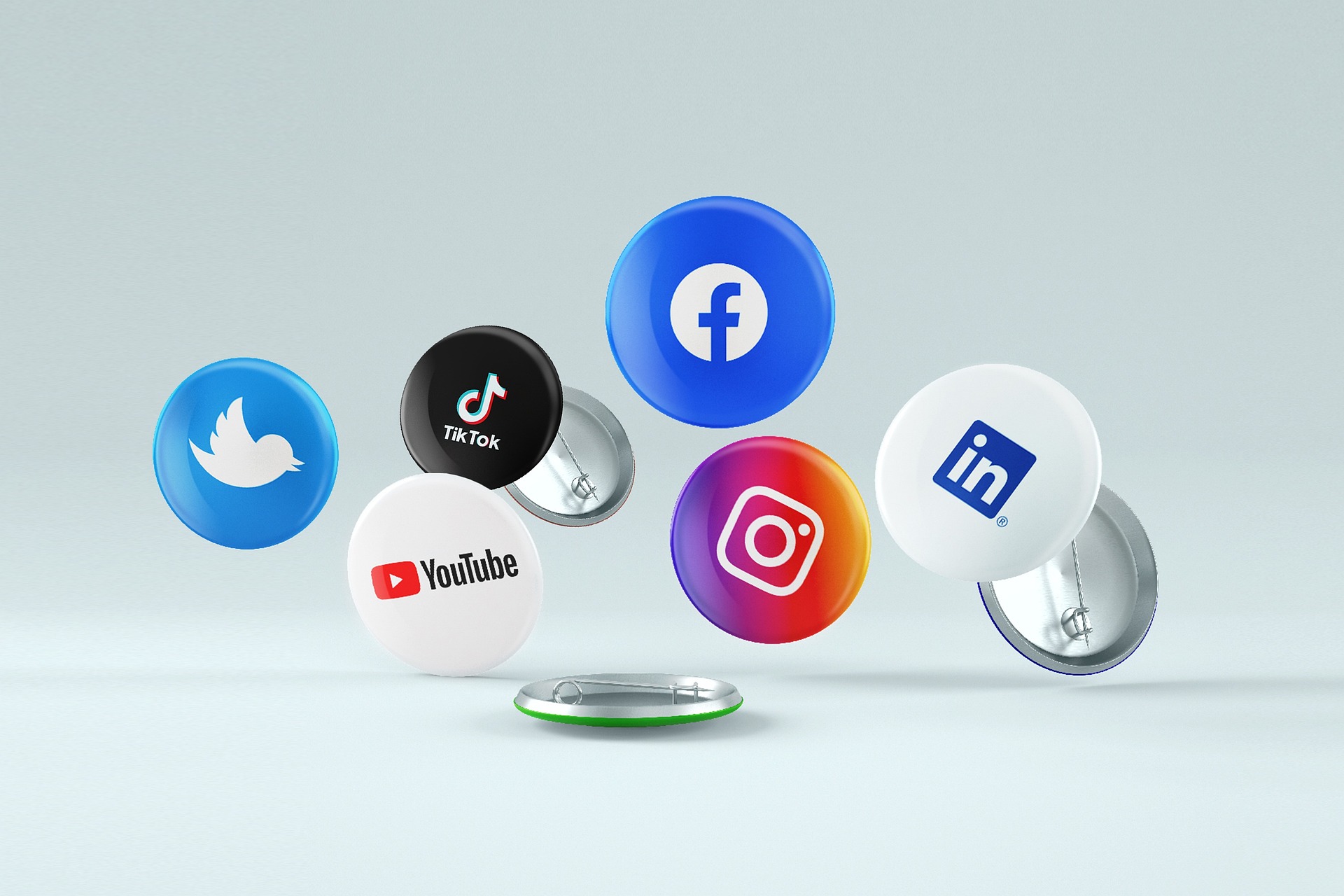In the digital age, social media has revolutionized the way we connect, communicate, and maintain relationships. Platforms like Instagram, Facebook, TikTok, and Snapchat have become integral to modern life, influencing personal and romantic relationships in profound ways. While social media offers opportunities for deeper connection, it also introduces unique challenges that can strain partnerships.
This blog explores how social media affects modern relationships, from communication styles to trust issues, offering insights into navigating its complexities for healthier connections.
1. Enhanced Connectivity and Communication
Social media allows couples to stay connected despite physical distance. Through instant messaging, video calls, and sharing updates, partners can remain involved in each other’s daily lives.
For long-distance relationships, platforms like WhatsApp or FaceTime bridge the communication gap, fostering a sense of intimacy. However, the downside is that digital interactions can sometimes replace meaningful, face-to-face conversations. While emojis and GIFs express emotions, they can lack the depth of real-world communication.
2. Comparison Culture and Unrealistic Expectations
Scrolling through perfectly curated posts of “happy couples” can lead to unhealthy comparisons. Social media often showcases idealized versions of relationships, creating pressure to meet unrealistic standards.
Couples may feel inadequate if their relationship doesn’t match the highlights of others’ lives. This comparison culture can breed dissatisfaction, envy, and insecurity, even in otherwise healthy relationships.
3. The Role of Oversharing
Social media encourages users to share every aspect of their lives, but oversharing can impact relationship dynamics. Posting intimate details about your relationship might invite unwanted opinions or judgments from others.
Moreover, one partner might feel uncomfortable if the other shares personal moments without consent. Establishing boundaries around what is and isn’t appropriate to post is essential for maintaining trust and respect.
4. Trust Issues and Jealousy
Social media can amplify trust issues and jealousy in relationships. Seeing your partner interact with others online—liking posts, commenting, or engaging in private messages—can trigger insecurities.
For example, a partner may misinterpret a friendly interaction as flirting, leading to unnecessary conflicts. Additionally, the ease of private messaging on platforms like Instagram or Snapchat can make it tempting for some to engage in inappropriate behaviors, such as emotional cheating.
5. Social Media and Emotional Cheating
While physical cheating is universally recognized as a breach of trust, emotional cheating—often facilitated by social media—is just as damaging.
Emotional cheating involves forming a deep emotional connection with someone outside the relationship, often through private chats or direct messages. Social media makes these interactions easy, discreet, and, for some, less “wrong,” though the impact on the relationship can be devastating.
6. The Pressure to Perform
In the era of “relationship goals,” there’s immense pressure to present a picture-perfect partnership online. Couples may feel compelled to showcase grand gestures, luxury vacations, or anniversary celebrations for likes and validation.
However, this performative aspect can detract from the authenticity of the relationship. Instead of focusing on genuine connection, some couples prioritize creating content that appeals to their audience, leading to emotional disconnect.
7. Time Spent on Social Media
Excessive social media usage can detract from quality time spent with your partner. Scrolling through feeds during meals or before bed can make one partner feel ignored or undervalued.
A 2018 study by the Pew Research Center found that 51% of Americans in relationships reported feeling neglected due to their partner’s smartphone usage. This digital distraction can create distance and tension in relationships, emphasizing the need for mindful device use.
8. Miscommunication and Misinterpretation
The brevity of online communication often leads to misunderstandings. A single text or comment can be taken out of context, sparking unnecessary arguments. Without nonverbal cues like tone or facial expressions, messages can be misinterpreted, escalating minor disagreements into major conflicts.
Couples should strive to clarify intentions and avoid jumping to conclusions based on digital interactions.
9. Privacy Concerns
Social media blurs the line between public and private life. Some partners may feel uneasy about their relationship being displayed online, while others crave public acknowledgment.
This discrepancy in comfort levels can lead to conflicts. Additionally, privacy concerns arise when one partner frequently checks the other’s online activity, such as scrolling through messages or monitoring followers, which can erode trust.
10. Opportunities for Positive Reinforcement
Despite its challenges, social media also offers opportunities for positive reinforcement in relationships. Sharing thoughtful posts, leaving kind comments, or sending uplifting messages can strengthen emotional bonds.
For couples in long-term relationships, reminiscing over shared posts or photos can reignite fond memories and deepen their connection.
11. Social Media’s Role in Dating
Social media isn’t just about maintaining relationships—it also plays a significant role in forming them. Many modern relationships begin online through apps like Tinder, Bumble, or Hinge.
While these platforms offer a convenient way to meet potential partners, they also introduce challenges like ghosting, catfishing, and superficial judgments based on profiles. Navigating online dating requires patience and clear communication.
12. Cyberbullying and Public Conflicts
When disagreements spill onto social media, they can escalate quickly. Publicly airing relationship grievances invites judgment and criticism, potentially worsening the conflict.
Cyberbullying, in the form of passive-aggressive posts or comments, can harm a partner’s self-esteem and damage the relationship. It’s essential to address issues privately rather than seeking validation online.
13. The Influence of Influencers
Social media influencers often shape perceptions of love and relationships. While some provide valuable insights, others may perpetuate unrealistic ideals.
Couples should approach influencer content critically, focusing on what works for their unique dynamic rather than emulating what they see online.
14. Balancing Online and Offline Worlds
Striking a balance between online interactions and real-world connections is crucial for relationship health. Prioritizing face-to-face time over digital communication fosters intimacy and helps couples build stronger emotional bonds.
Couples can set boundaries, such as phone-free dinners or designated times for social media use, to ensure quality time together.
15. Social Media Detox for Relationship Health
A social media detox can be beneficial for couples struggling with its negative impact. Taking a break from platforms allows partners to reconnect without digital distractions.
During this period, focus on activities that promote genuine connection, such as traveling, engaging in shared hobbies, or having deep conversations.
Navigating Social Media in Modern Relationships
Social media is a double-edged sword for relationships. It offers unparalleled opportunities for connection but also introduces challenges that require mindfulness and effort to overcome.
Couples can navigate these challenges by:
- Setting clear boundaries around social media use.
- Communicating openly about insecurities or concerns.
- Prioritizing real-world connections over digital interactions.
- Avoiding comparisons with others online.
By using social media as a tool to enhance, rather than hinder, their relationship, couples can build stronger, healthier bonds in the digital age.
Final Thoughts
The impact of social media on modern relationships is undeniable. While it has transformed how we connect, it’s essential to use it mindfully to avoid potential pitfalls. By understanding its effects and implementing strategies to mitigate challenges, couples can harness social media’s benefits without compromising their relationship’s integrity.




